Blogs & News
We are focus on automotive wiring harness & connectors technology.
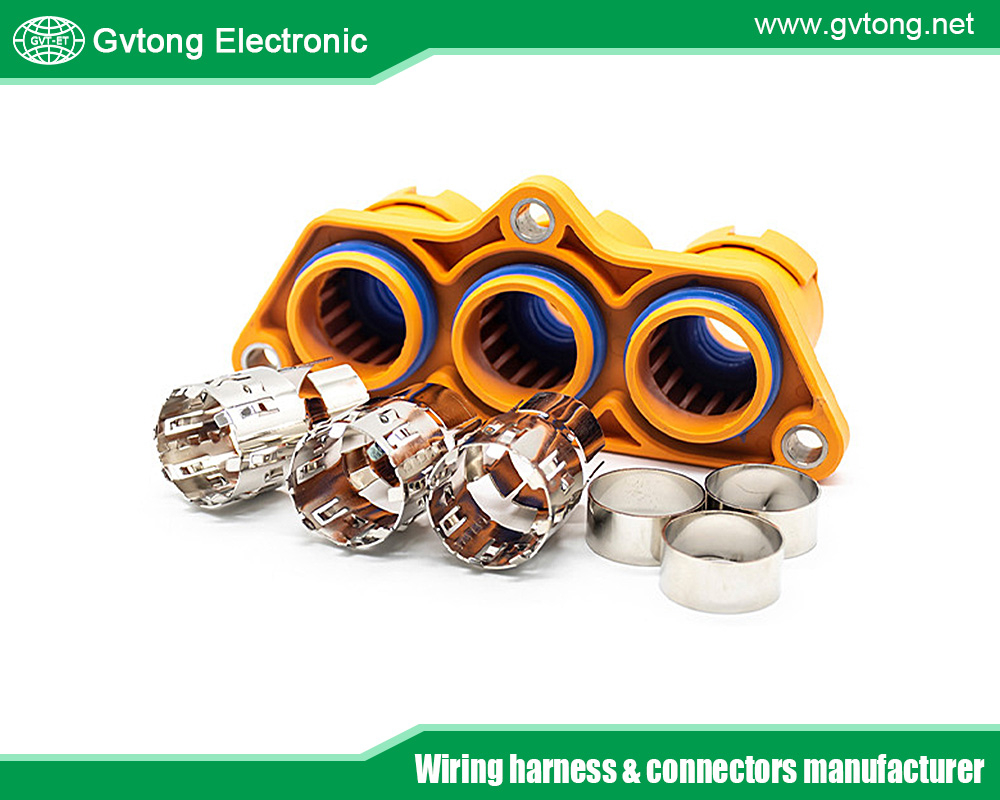
China Industrial Electrical Connectors Manufacturers
- Gvtong Electronic
- automotive antenna connector, automotive coaxial connector, automotive data connector, automotive electrical connector, automotive electrical connector suppliers in thailand, automotive High voltage connector, automotive Low voltage connector, Automotive Low Voltage Signal And Power Connector Solutions, automotive Oil-resistant Connectors, automotive Signal Connector, automotive waterproof connectors, best china industrial electrical connectors manufacturers, best photovoltaic connectors for solar panels, Best Photovoltaic Solar Battery Connectors For Energy Storage Systems, china electrical connectors manufacturers, China Energy Storage Connector Manufacturers, China High Current Connectors Manufacturer, China High Frequency And High Speed Connectors Manufacturer, china industrial electrical connectors, China Industrial Electrical Connectors Manufacturers, china photovoltaic connectors manufacturers, electric vehicle EV connector supplier, electrical connectors manufacturers, EV charging connectors manufacturers, High Voltage EV Battery Connector For Electric Vehicles, industrial electrical connectors, industrial electrical connectors manufacturers
- No Comments
China Industrial Electrical Connectors Manufacturers
Industrial electrical connectors are specialized devices designed to join electrical circuits, ensuring the reliable transmission of power and signals in demanding environments. These components are indispensable across a variety of industries, including manufacturing, energy, transportation, and telecommunications. They are engineered to withstand harsh conditions such as extreme temperatures, vibrations, and moisture, making them critical for the operation of complex systems like factory automation equipment, renewable energy grids, and heavy machinery. In China, the production of industrial electrical connectors has seen remarkable growth, fueled by the nation’s rapid industrialization, technological advancements, and robust manufacturing infrastructure. This article delves into the landscape of China’s industrial electrical connectors manufacturers, exploring their significance, key players, market trends, global context, and future prospects.
The importance of industrial electrical connectors lies in their ability to facilitate seamless connectivity in environments where reliability is non-negotiable. For instance, in manufacturing, they enable the automation of production lines; in energy, they support the integration of solar and wind power systems; and in transportation, they power everything from high-speed trains to electric vehicles (EVs). As China continues to position itself as a global manufacturing powerhouse, its industrial electrical connectors industry has become a cornerstone of both domestic and international markets.
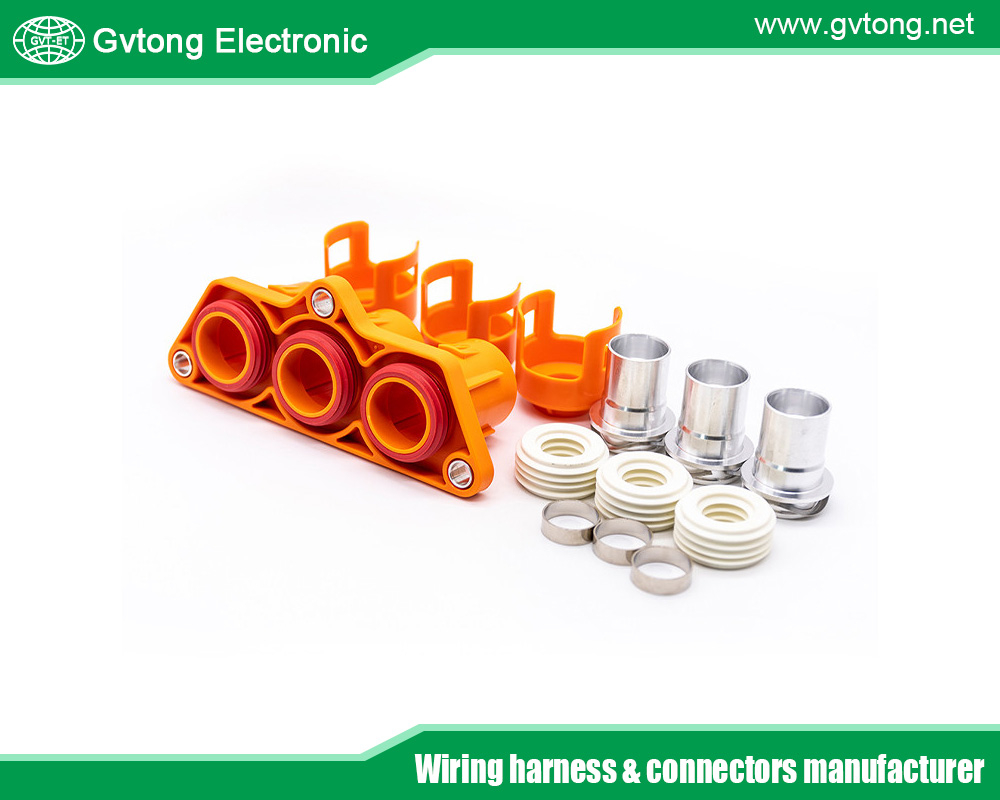
The Current State of the Industry in China
China has solidified its position as a global leader in the production of industrial electrical connectors, leveraging its vast manufacturing capabilities, skilled workforce, and technological expertise. The industry comprises a diverse mix of large-scale enterprises and specialized firms, each contributing to the sector’s growth and innovation. This competitive landscape has enabled China to meet the rising demand for high-quality connectors both domestically and abroad.
Key Players in the Chinese Market
Several manufacturers stand out as leaders in China’s industrial electrical connectors manufacturers, known for their quality, innovation, and market presence. Here are some of the key players:
- JINH Electric Co., Ltd.
Established in 1997, JINH Electric specializes in terminal blocks, insulated terminals, and a wide range of electrical connectors. With over two decades of experience, the company has built a reputation for its extensive product portfolio and unwavering commitment to quality. JINH serves industries such as industrial automation, power distribution, and telecommunications, catering to both domestic and international clients.
- Yonggui Electric Connector
Yonggui Electric is a prominent name in the industry, focusing on industrial electrical connectors and related components. The company is celebrated for its innovative solutions, offering products that meet the needs of diverse applications, from heavy machinery to renewable energy systems. Yonggui’s emphasis on research and development (R&D) has positioned it as a leader in connector technology.
- Weipu
With more than 20 years of expertise, Weipu is a professional manufacturer of circular connectors, industry connectors, and heavy-duty connectors. The company is particularly noted for its high-quality, waterproof connectors, which are widely used in harsh environments such as marine, aerospace, and industrial settings. Weipu’s dedication to durability and performance has earned it a strong foothold in the market.
- JONHON
As the largest manufacturer of highly reliable optical, electrical, and fluid connectors in China, JONHON plays a pivotal role in the industry. The company excels in producing advanced connectors for cutting-edge applications, including aerospace, telecommunications, and electric vehicles. JONHON’s focus on high-reliability solutions has made it a preferred supplier for critical infrastructure projects worldwide.
Market Trends
The Chinese industrial electrical connectors market is evolving rapidly, driven by several key trends. One of the most significant is the growing demand for high-quality, reliable connectors, spurred by the increasing adoption of automation and Internet of Things (IoT) technologies. As industries embrace smart manufacturing and interconnected systems, connectors must support higher data rates and power levels, pushing manufacturers to innovate continuously.
Another notable trend is the rise of sustainable energy solutions. The global shift toward renewable energy sources, such as solar and wind power, has heightened the need for connectors that can operate efficiently in these systems. Chinese manufacturers have responded by developing products tailored to the unique requirements of green energy applications, further solidifying their role in the global supply chain.
Additionally, the integration of advanced technologies like 5G and artificial intelligence (AI) into industrial processes is reshaping the connector landscape. These technologies demand connectors that can handle high-speed data transmission and complex power requirements, prompting Chinese firms to invest heavily in R&D and production capabilities.
The Global Context
China’s industrial electrical connectors industry is not an isolated entity; it is deeply integrated into the global market, playing a vital role in the worldwide supply chain. The country has emerged as a major exporter of electrical connectors, shipping products to key regions such as North America, Europe, and Southeast Asia. This global reach is underpinned by China’s competitive pricing, large-scale production capacities, and ability to meet international quality standards.
Comparison with Other Countries
When compared to leading manufacturers in countries like the United States and Germany, China holds its own in terms of technological capabilities and production volume. The U.S. and Germany are renowned for their advanced engineering and stringent quality standards, often catering to high-end markets with specialized connectors. However, Chinese manufacturers frequently outpace their counterparts in cost-efficiency and scalability, making them attractive to businesses seeking affordable yet reliable solutions.
For example, while American and German firms might dominate in aerospace or precision engineering applications, Chinese companies excel in mass-producing connectors for industrial automation and consumer electronics. This complementary dynamic ensures that China remains a critical player in the global ecosystem, balancing cost and quality to meet diverse market needs.
Trade Agreements and Regulations
China’s dominance in the industrial electrical connectors market is further bolstered by its participation in international trade agreements and initiatives. The Belt and Road Initiative (BRI), for instance, has expanded China’s influence by opening new markets and fostering collaboration with countries across Asia, Africa, and Europe. This initiative has enabled Chinese manufacturers to establish stronger supply chains and penetrate emerging economies with growing industrial sectors.
Moreover, adherence to global standards is a cornerstone of China’s export strategy. Many Chinese manufacturers comply with regulations set by the International Electrotechnical Commission (IEC) and other bodies, ensuring their products meet the rigorous demands of international customers. This commitment to standardization enhances China’s reputation as a reliable supplier and facilitates smoother trade relationships.
Challenges and Opportunities
Despite its strengths, the industry faces challenges such as trade tensions and rising material costs. For instance, tariffs imposed by some countries on Chinese goods can impact export volumes, while fluctuations in raw material prices may squeeze profit margins. However, these challenges also present opportunities for innovation, encouraging manufacturers to explore alternative materials and streamline production processes.
Future Insights and Predictions
The future of China’s industrial electrical connectors industry is bright, with several emerging trends poised to drive growth and transformation. As the world continues to embrace advanced technologies and sustainable practices, Chinese manufacturers are well-positioned to lead the charge.
Impact of Emerging Technologies
The rollout of 5G networks and the expansion of electric vehicle infrastructure are two major catalysts for the industry. 5G requires connectors capable of supporting ultra-fast data transmission, while EVs demand robust, high-power connectors for charging systems and battery management. Chinese firms like JONHON and Yonggui are already developing products to meet these needs, leveraging their R&D expertise to stay ahead of the curve.
Additionally, the rise of Industry 4.0—characterized by smart factories and IoT-enabled devices—will further increase demand for advanced connectors. These connectors must be compact, durable, and capable of handling complex electrical and data requirements, areas where Chinese manufacturers are actively innovating.
Sustainability and Green Innovation
Sustainability is another key focus for the future. As global efforts to reduce carbon footprints intensify, Chinese manufacturers are investing in eco-friendly materials and energy-efficient production methods. This aligns with China’s broader environmental goals, such as achieving carbon neutrality by 2060, and positions the industry to meet the growing demand for green technologies.
For example, connectors designed for renewable energy systems are being optimized to reduce energy loss and improve longevity, contributing to more sustainable industrial operations. This shift not only enhances the industry’s environmental credentials but also opens new market opportunities in eco-conscious regions like Europe.
Strategic Positioning
Chinese manufacturers are strengthening their global competitiveness through strategic partnerships and technological investments. Collaborations with international tech leaders allow them to access cutting-edge innovations, while domestic investments in automation and digital manufacturing enhance production efficiency. Companies like Weipu and JINH are expanding their product lines to cater to niche markets, ensuring they remain versatile and adaptable in a dynamic industry.
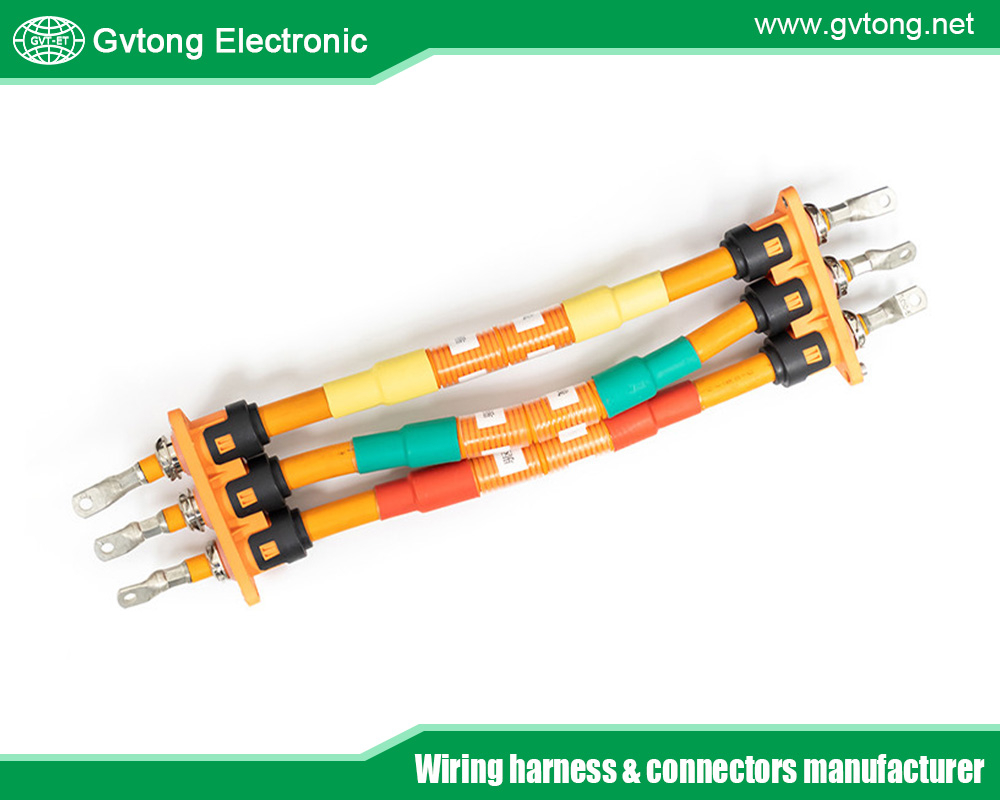
Conclusion
China’s industrial electrical connectors manufacturers have firmly established themselves as vital contributors to both domestic and global markets. Through a combination of innovation, quality, and strategic foresight, they have built an industry that powers critical systems worldwide. Key players like JINH Electric, Yonggui, Weipu, and JONHON exemplify the sector’s strengths, delivering reliable solutions for a wide range of applications.
As market trends evolve and new technologies emerge, these manufacturers are poised to shape the future of industrial connectivity. The integration of 5G, EVs, and sustainable practices will drive demand for advanced connectors, and China’s ability to innovate and scale production will ensure its continued leadership. With a solid foundation and a forward-looking approach, China’s industrial electrical connectors industry is set to power the next era of global industrialization and technological advancement.
For more about the best china industrial electrical connectors manufacturers, you can pay a visit to Gvtong at https://www.gvtong.net/ for more info.
Recent Posts
How to Diagnose and Repair Automotive Signal Connector Failures
How to Install and Maintain Low Pressure Automotive Connectors
Heat Shrink vs. Crimp: Choosing the Right 12V Car Wire Connector
Best 12V Automotive Wire Connectors for Reliable Electrical Connections
Tags
Recommended Products
-

Photovoltaic Connector-Board Socket
-
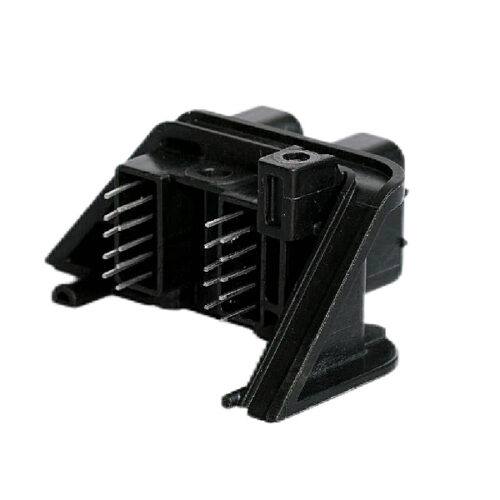
GE Series-20PIN Right Angle Connector Socket
-

GE Series-34/40-core double-row signal connector
-

GE Series-18/26-core double-row signal connector
-

GM Series-3.6mm-3-core Metal Connector
-

GE Series-32-core rectangular connector
-
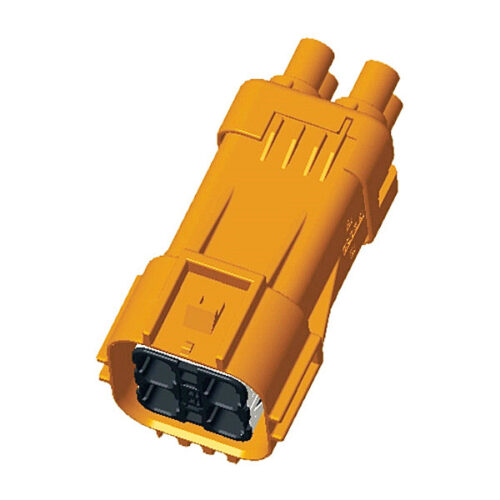
High voltage connector-GH630 series-4P
-
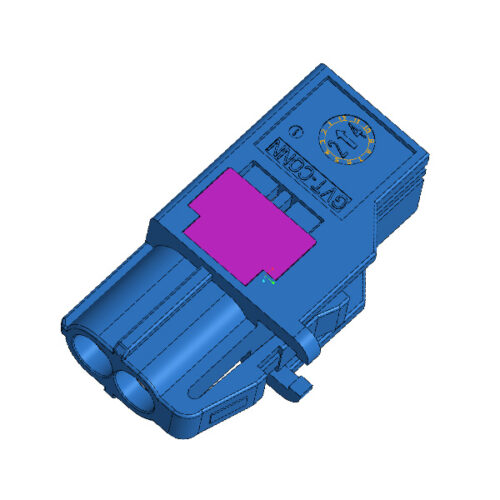
Automotive MINI Fakra High-Speed 2Pin Female To Fakra Male Z Code Connector
